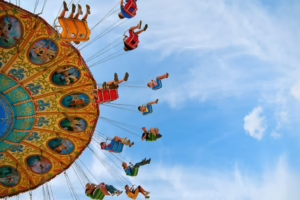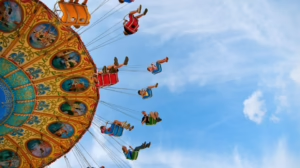Celebrity Scandals: The Untold Stories Making Headlines
Introduction
In the realm of entertainment, celebrity scandals are as old as Hollywood itself. From the infamous drug-fueled parties of the 1970s to the shocking revelations of the Me Too movement, these stories not only dominate headlines but also often reveal deeper societal issues. This article delves into some of the most compelling, yet untold, celebrity scandals that have shaped our understanding of fame, privacy, and morality.
The Nature of Scandal in Celebrity Culture
What is a Scandal?
At its core, a scandal involves actions or events that are considered morally or legally wrong, often leading to public outrage. In the world of celebrities, such events can range from infidelity, substance abuse, and financial crimes to more complex issues like mental health struggles or allegations of misconduct. The sensational nature of these stories often attracts media attention, and they can have lasting impacts on the lives of the celebrities involved.
The Media’s Role
Celebrity scandals are amplified by the media, which thrives on sensationalism and controversy. Tabloids, online gossip blogs, and social media platforms turn private matters into public spectacles. Some scandals are meticulously constructed narratives that the media capitalizes on, while others may start as genuine issues but evolve into larger phenomena due to public interest.
Untold Stories Behind Famous Scandals
While many celebrity scandals are widely known and discussed, some carry untold stories that reveal the complexities behind the headlines. Below are some cases that warrant deeper exploration.
1. The Hidden Struggles of Britney Spears
The Conservatorship Controversy
Britney Spears’ struggles with mental health and her conservatorship have been well-documented, yet the nuances of her situation often go overlooked. Plagued by the pressures of fame, Spears began exhibiting increasingly erratic behavior in the mid-2000s. In 2007, she infamously shaved her head and attacked a paparazzi’s car with an umbrella.
However, the scandal transitioned into a significant legal battle that exposed the frailties of the American legal system regarding mental health. Spears was placed under a conservatorship, managed primarily by her father, which many advocates argue was an exploitative arrangement rather than a protective measure. Her case sparked a global movement, #FreeBritney, raising questions about the nature of consent and autonomy in celebrity culture[^1].
2. The Darker Side of Ellen DeGeneres
Behind the Notes of a Happy Show
Ellen DeGeneres has long been celebrated as a beacon of positivity, but in 2020, allegations surfaced about a toxic work environment on her talk show. Former employees reported experiences of bullying and harassment, leading to investigations and significant public backlash. While DeGeneres posited that she had no idea about the workplace issues, critics questioned the authenticity of her on-screen persona[^2].
The fallout from this scandal was multi-layered. It revealed how easily public figures can become embroiled in criticisms of their personal and professional lives. It also ignited discussions about the importance of representation and accountability among those who wield significant influence in the entertainment industry.
3. The Fall of Harvey Weinstein
A Turning Point for Hollywood
The revelations against producer Harvey Weinstein in late 2017 became a catalyst for the Me Too movement. While many are aware of the allegations surrounding Weinstein’s predatory behavior, lesser-known are the systemic failures within Hollywood that enabled his misconduct for decades. The countless women who were silenced and the cultural climate that upheld silence also deserve attention[^3].
The scandal prompted an unprecedented wave of women speaking out against abuse in the industry, opening dialogues about consent, power dynamics, and the need for systemic change. The wave of allegations against various public figures highlighted how endemic these issues were, thereby reshaping conversations around gender and power in the entertainment industry.
4. Justin Bieber’s Troubled Youth
From Teen Idol to Rebel
Justin Bieber’s transition from a beloved teen pop star to someone embroiled in legal troubles is illustrative of the pressures faced by young artists. The young singer faced a series of legal issues, including arrests for drunk driving and vandalism. However, what is often left untold is the impact of fame on his mental health and well-being[^4].
Bieber struggled with the pressures of constantly being in the public eye, leading him to engage in reckless behavior. In a series of interviews, he opened up about the profound loneliness and insecurity he felt during this period of his life. These reflections reveal the often unaddressed emotional toll that fame can inflict on young artists.
5. The Other Side of Amanda Bynes
The Battle for Identity
Amanda Bynes’ descent into chaos began in 2012 when her erratic behavior led to a series of legal troubles and mental health crises. Although many viewers witnessed the public fallout, little attention was paid to Bynes’ attempts to reclaim her identity and privacy. The actress recently spoke about her struggles, revealing how the pressures of fame led her down a dark path[^5].
A significant aspect of Bynes’ situation is the way the media reported her fall from grace, often framing her as just a “Hollywood train wreck” rather than analyzing the root causes. Her story highlights the importance of compassion when handling celebrity scandals, as celebrities are often victims to their circumstances and systemic issues within the entertainment industry.
The Impact of Scandals on Public Perception
Changing Narratives
Scandals can significantly shift public perception, both of the celebrity involved and the cultural norms surrounding them. For instance, the #MeToo movement transformed how audiences view allegations of assault and misconduct. No longer are these issues seen as isolated incidents; they are recognized as widespread problems that merit serious attention.
The Role of Social Media
The rapid dissemination of information through social media amplifies celebrity scandals, leading to immediate public reactions. Platforms like Twitter and Instagram allow fans and critics alike to voice their opinions, often creating a discourse that shapes public sentiment. This democratization of dialogue can empower individuals to speak out but can also lead to mob mentality and online harassment.
The Psychology Behind Scandals
Fame and Mental Health
Many celebrities struggle with mental health issues, exacerbated by the pressures of fame. The public scrutiny, relentless media coverage, and expectations can have devastating effects on their well-being. Studies have suggested that many individuals in the public eye suffer from anxiety, depression, and other mental health challenges due to their celebrity status[^6].
The Search for Redemption
In the aftermath of a scandal, many celebrities embark on a path toward redemption. This journey can manifest in various forms—public apologies, charity work, or a shift in artistic direction. However, the question remains whether the public is truly willing to forgive and forget. Some celebrities, like Robert Downey Jr., can successfully redefine their legacies following personal scandals, while others may remain forever marked by their past actions[^7].
The Future of Celebrity Scandals
Evolving Standards
As society becomes more aware of mental health issues, workplace harassment, and the complexities of consent, the standards by which celebrities are judged are evolving. Scandals are no longer seen as purely personal failings but as opportunities for societal reflection and change. The media and public alike are beginning to consider the systemic factors that contribute to these situations, driving a more nuanced understanding of fame.
The Role of Accountability
Accountability is crucial in the aftermath of a scandal. As more celebrities are called to account for their actions, the discourse surrounding ethics in entertainment is shifting. The pressure from fans and advocacy groups can drive change within the industry, prompting organizations to adopt better practices and protections for artists.
Conclusion
Celebrity scandals, with all their drama and intrigue, offer a window into the complexities of fame. They are not merely sensational stories but reflections of larger societal issues that urge us to examine our cultural narratives. The untold stories behind these scandals reveal the human experiences often overlooked amid the chaos. By exploring these narratives, we can foster compassion and a deeper understanding of those who navigate the tumultuous waters of public life.
References
[^1]: “Britney Spears: The fight for freedom from conservatorship,” The Guardian, 2021.[^2]: “Ellen DeGeneres and the Toxic Workplace Allegations,” Variety, 2020.
[^3]: “The Harvey Weinstein Scandal: A Turning Point for Women in Hollywood,” New York Times, 2017.
[^4]: “The Personal Struggles of Justin Bieber: Fame and its Effects,” Rolling Stone, 2019.
[^5]: “Amanda Bynes: A Journey of Recovery and Redemption,” People Magazine, 2021.
[^6]: “The Impact of Celebrity Culture on Mental Health,” Psychology Today, 2020.
[^7]: “Robert Downey Jr.: From Scandal to Hollywood Comeback,” Entertainment Weekly, 2019.


























Add Comment